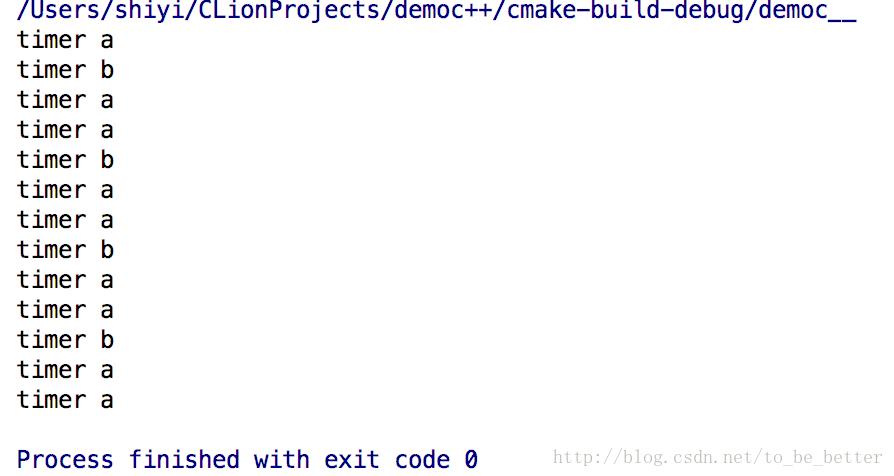Linux上定时器的实现
Posted shiyicode
tags:
篇首语:本文由小常识网(cha138.com)小编为大家整理,主要介绍了Linux上定时器的实现相关的知识,希望对你有一定的参考价值。
方法1. 使用sleep或者usleep
这种方法很简单,这里就不具体描述,它的缺点也很明确:精度不够,特别是在系统负载比较大时,会发生超时现象。
方法2. 使用信号量SIGALRM + alarm()
alarm也称为闹钟函数,alarm()用来设置在经过参数seconds指定的秒数后传送信号SIGALRM给目前的进程。如果参数seconds为0,则之前设置的闹钟会被取消,并将剩下的时间返回。要注意的是,一个进程只能有一个闹钟时间,如果在调用alarm之前已设置过闹钟时间,则任何以前的闹钟时间都被新值所代替。
那么我们可以使用signal函数设定SIGALRM的处理函数,然后使用alarm定时发送SIGALRM来达到我们的目的。
#include <stdio.h>
#include <signal.h>
#include <unistd.h>
void timer(int sig)
if(SIGALRM == sig)
printf("timer\\n");
alarm(1);
return;
int main()
signal(SIGALRM, timer);
alarm(1);
getchar();
return 0;
这里只是简单的实现了一下,所以是无线循环定时,完善很容易。
这个方法很方便,实现也很简单,但是也有缺点,就是精度不能小于1秒。
方法3. select+多线程
原理很简单,利用select()方法的第5个参数,第一个参数设置为0,三个文件描述符集都设置为NULL,第5个参数为时间结构体,设置为我们想要定时的事件频率即可。
#include <iostream>
#include <pthread.h>
#include <functional>
#include <time.h>
#include <sys/select.h>
#include <unistd.h>
class Timer
public:
Timer() = default;
Timer(int sec, int usec, int count, const std::function<void()> &callback)
: sec_(sec), usec_(usec), count_(count), callback_(callback)
void startTimer()
pthread_create(&thread_, NULL, work, this);
void endTimer()
//终止线程
pthread_cancel(thread_);
//回收线程资源
pthread_join(thread_, NULL);
private:
//解决类成员函数不能作为pthread_create函数参数的问题
static void* work(void* timer)
static_cast<Timer*>(timer)->workTimer();
void workTimer()
for(int i=0; i<count_; i++)
struct timeval tempval;
tempval.tv_sec = sec_;
tempval.tv_usec = usec_;
select(0, NULL, NULL, NULL, &tempval);
callback_();
int sec_;
int usec_;
int count_;
std::function<void()> callback_;
pthread_t thread_;
;
int main()
Timer a(1,0,10,[]()std::cout<<"timer a"<<std::endl;);
a.startTimer();
Timer b(2,0,5,[]()std::cout<<"timer b"<<std::endl;);
b.startTimer();
getchar();
return 0;
运行结果:

以上是关于Linux上定时器的实现的主要内容,如果未能解决你的问题,请参考以下文章